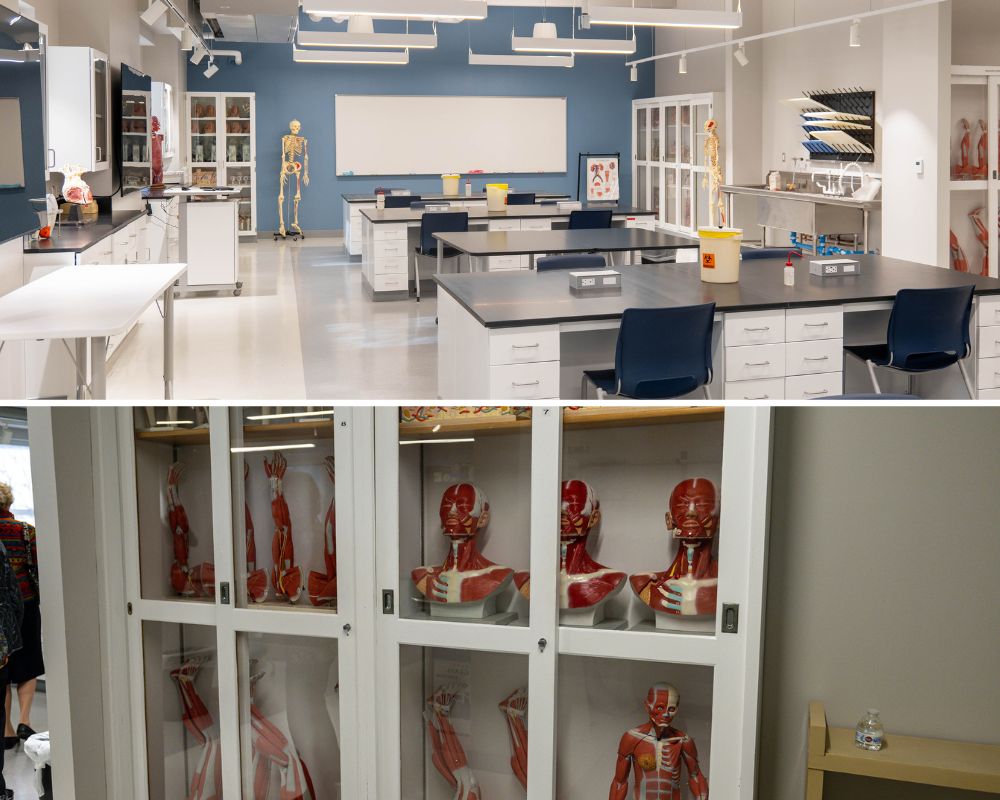The last major overhaul for Notre Dame of Maryland University’s (NDMU) main STEM-focused building took place in 1999. That was before the bulk of the mobile computing revolution and the university’s decision to admit men into its traditional undergraduate program, a change that commenced in the fall of 2023.
Changes kicked off last year, when NDMU in Baltimore hosted a hard hat ceremony and wall breaking to denote the beginning of renovations for its Knott Science Center.
Yesterday marked the ribbon-cutting ceremony for the $9 million science center renovation project, funded through NDMU’s $45 million Go BeyoND campaign. In 2022, NDMU secured $1.5 million from the Maryland Department of Commerce to advance STEM innovation through an endowed chair in biological sciences.
Dignitaries from the City of Baltimore and staff from the private university, including Dr. Carroll Galvin, NDMU’s VP for institutional advancement and university communications, were in attendance.
“The event offered Notre Dame’s donors, benefactors, friends, and the wider Baltimore community the chance to see a cutting-edge STEM facility, transformed for the 21st century learner with window-filled laboratories, flexible learning and collaboration spaces, and modern educational technology,” Galvin said in an email to Technical.ly. “NDMU’s newly-renovated Knott Science and Innovation Center will expose our students to the latest educational and scientific technology to ensure they are prepared for careers in healthcare and biotechnology upon graduation.”

Galvin’s hope is that the Knott Center’s glass-walled classrooms and labs will encourage students to excel in teamwork and problem-solving skills, aiding cross-collaboration between academic disciplines like biology, biochemistry and bioinformatics.
“Creating a strong, life-science hub which will weather potential job market changes requires collaboration between life-science programs, [complementary] programs in health care, as well as our core traditions in the liberal arts,” he said.
Another way students stay connected to their community of fellow biologists outside of chance encounters within the Knott Science Center is through an honor society program called Beta Beta Beta, or TriBeta. This program is accessible to NDMU students majoring in biology who have completed at least three biology semester courses during their sophomore year with an average grade of B+.







